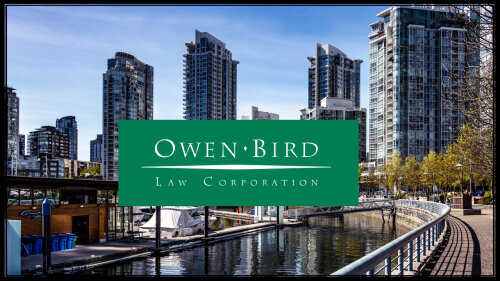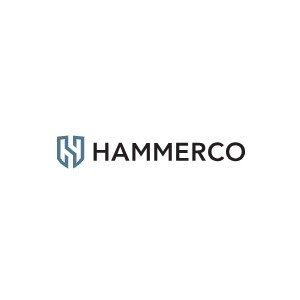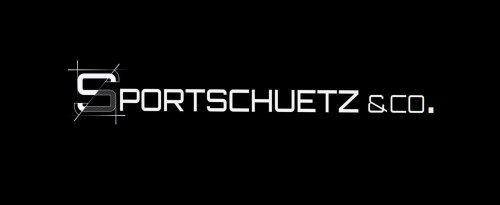Best Antitrust Litigation Lawyers in Vancouver
Share your needs with us, get contacted by law firms.
Free. Takes 2 min.
List of the best lawyers in Vancouver, Canada
Canada Antitrust Litigation Legal Articles
Browse our 1 legal article about Antitrust Litigation in Canada written by expert lawyers.
- Canada Competition Act Updates: Risks for Foreign Investors
- Lower Intervention Thresholds: The Competition Bureau can now challenge mergers that significantly lessen competition even if they do not create a total monopoly. Global Revenue Penalties: Violations may result in administrative monetary penalties (AMPs) of up to 10% of a company's worldwide gross revenue or three times the benefit derived... Read more →
About Antitrust Litigation Law in Vancouver, Canada
Antitrust litigation, also known as competition law litigation, addresses situations where businesses or individuals engage in unfair practices that restrict competition or harm consumers. In Vancouver, Canada, these cases typically fall under federal jurisdiction, governed primarily by the Competition Act. Antitrust disputes often involve allegations of practices such as price-fixing, market allocation, bid-rigging, and abuse of dominant market position. The aim of antitrust law is to maintain fair competition in the marketplace, protect consumers, and foster innovation. Litigation may be initiated by individuals, businesses, or government regulators when they believe antitrust laws have been violated.
Why You May Need a Lawyer
There are several scenarios where you may need the assistance of a lawyer specializing in antitrust litigation in Vancouver:
- You suspect another company is engaging in price-fixing, bid-rigging, or collusion that harms your business or consumers.
- Your business is being investigated by the Competition Bureau for anticompetitive behavior such as abuse of dominance or cartel conduct.
- You are a consumer or business harmed financially by anticompetitive practices and wish to seek damages through a private action.
- Your company needs advice on compliance with Canadian competition laws to avoid potential violations.
- You have received a subpoena or legal demand related to an antitrust case and require representation or guidance.
- You are facing penalties or criminal charges under the Competition Act.
A lawyer can help you navigate the complex requirements of Canadian competition law, advise you on your rights and obligations, and represent you in court or before regulatory bodies.
Local Laws Overview
In British Columbia, including Vancouver, antitrust law matters are regulated by federal statutes, with the Competition Act being the cornerstone. Key points relevant to antitrust litigation include:
- Competition Act: Prohibits anti-competitive agreements, abuse of dominant position, deceptive marketing practices, and mergers that substantially lessen competition.
- Enforcement: The Competition Bureau investigates suspected violations and can refer cases for prosecution before the Competition Tribunal or criminal courts.
- Civil and Criminal Liability: Certain breaches, such as price-fixing and bid-rigging, are criminal offenses, while others may result in civil penalties or orders to cease the offending conduct.
- Private Actions: Individuals or companies harmed by anticompetitive practices can launch civil actions for damages in Provincial Superior Courts, including the Supreme Court of British Columbia.
- Class Actions: Groups of plaintiffs can bring collective claims for widespread harm caused by antitrust violations.
- Remedies: Courts and tribunals may grant injunctive relief, award damages, or issue orders to restore competition.
Frequently Asked Questions
What is antitrust litigation?
Antitrust litigation involves legal disputes concerning violations of competition laws, such as collusion, price-fixing, bid-rigging, and abuse of market dominance, which harm competitors or consumers.
Who enforces antitrust laws in Vancouver, Canada?
The Competition Bureau, a federal agency, is responsible for investigating and enforcing competition laws across Canada, including in Vancouver.
Can individuals or businesses sue for damages in antitrust cases?
Yes, both individuals and businesses that suffer harm due to anticompetitive conduct may pursue private actions for damages in court.
What conduct is considered illegal under Canadian antitrust laws?
Illegal conduct includes price-fixing, bid-rigging, market allocation, abuse of dominant position, and certain types of deceptive marketing or anti-competitive mergers.
What penalties can result from an antitrust violation?
Penalties range from fines and damages payments in civil cases to criminal sanctions, including imprisonment, for more serious offenses like price-fixing or bid-rigging.
How are antitrust investigations triggered?
Investigations can start through complaints, tips, whistleblower reports, or from the Competition Bureau’s own monitoring activities.
What should I do if my company receives a notice of investigation?
Seek legal counsel immediately to ensure your rights are protected, understand your obligations, and formulate a response strategy.
Are antitrust cases often handled as class actions?
Yes, especially where many individuals or companies have been harmed by the same unlawful practice, class actions are common in antitrust litigation in Canada.
Do I need evidence to bring an antitrust claim?
Yes, strong evidence is crucial. This may include documents, communications, or economic data showing that anticompetitive behavior occurred and caused harm.
How long do antitrust cases typically take to resolve?
The length varies depending on complexity, but cases can take from several months to several years, especially if they proceed to trial.
Additional Resources
For those seeking more information or support related to antitrust litigation in Vancouver, helpful resources include:
- The Competition Bureau: Canada’s primary enforcer of competition laws, providing information on guidelines, investigations, and enforcement actions.
- The Supreme Court of British Columbia: Handles civil competition law cases, including private actions and class actions.
- Canadian Bar Association, British Columbia Branch: Offers information on finding legal professionals experienced in competition law.
- Public Legal Education and Information Organizations: Provide plain-language guides to legal rights and procedures in British Columbia.
- Industry and Trade Associations: Sometimes offer guidance on compliance and industry standards in relation to competition law.
Next Steps
If you believe you are involved in or affected by an antitrust issue in Vancouver, Canada, consider taking the following steps:
- Gather all relevant documents and evidence related to the suspected behavior.
- Consult with a lawyer who has experience in competition and antitrust law.
- If you are the subject of an investigation, do not destroy evidence or discuss the matter internally without legal guidance.
- Consider reporting suspected violations to the Competition Bureau or seeking informal advice from legal aid or advocacy organizations.
- Stay informed about your rights and the applicable legal processes to ensure you are prepared for any proceedings.
Taking prompt and informed action is essential when dealing with antitrust matters, as these cases can have significant legal and financial consequences. Professional legal advice can help you understand your options, protect your interests, and achieve a fair outcome.
Lawzana helps you find the best lawyers and law firms in Vancouver through a curated and pre-screened list of qualified legal professionals. Our platform offers rankings and detailed profiles of attorneys and law firms, allowing you to compare based on practice areas, including Antitrust Litigation, experience, and client feedback.
Each profile includes a description of the firm's areas of practice, client reviews, team members and partners, year of establishment, spoken languages, office locations, contact information, social media presence, and any published articles or resources. Most firms on our platform speak English and are experienced in both local and international legal matters.
Get a quote from top-rated law firms in Vancouver, Canada — quickly, securely, and without unnecessary hassle.
Disclaimer:
The information provided on this page is for general informational purposes only and does not constitute legal advice. While we strive to ensure the accuracy and relevance of the content, legal information may change over time, and interpretations of the law can vary. You should always consult with a qualified legal professional for advice specific to your situation.
We disclaim all liability for actions taken or not taken based on the content of this page. If you believe any information is incorrect or outdated, please contact us, and we will review and update it where appropriate.















